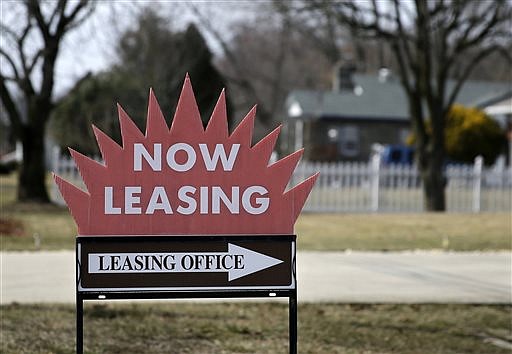Editor's note: The Arkansas General Assembly passed a bill in 2021 creating additional protections for renters. Go here to read an updated version of this story with information about the new protections.
At every step of the rental process, tenants in Arkansas have rights and protections, although not as many as in most other states. Here are the basics about renters’ rights in the Natural State.
While looking for a home
Kendall Lewellen, housing law practice group leader at Center for Arkansas Legal Services, said protections for renters begin before Arkansans ever sign a lease. By law, a landlord can’t deny housing or discourage someone from moving into a property based on certain protected classes.
Those classes include race, color, national origin, religion, sex, gender, disability or familial status such as having children or having custody of nonbiological children.
If someone thinks they may have been discriminated against, Lewellen said they can contact the Arkansas Fair Housing Commission for more information or assistance.
Lewellen said for people with disabilities, there are also legal requirements for landlords to provide reasonable accommodations and modifications.
Accommodations are changes to rules of the property, such as designating for a tenant an accessible parking space even if spaces are usually unassigned. Modifications are physical changes to the property, such as adding a bar in the shower.
Before signing the lease
Lewellen said Arkansas doesn’t have a warrant of habitability, which essentially means tenants do not have a right to safe, habitable housing and do not have a right to withhold rent or sue the landlord because their home isn’t liveable.
Therefore, Lewellen said most protections for tenants will come from the lease an individual signs with their landlord. She said it’s important to look for a home with a lease that spells out details on maintenance. Then, if issues with the condition of the unit arise, a tenant can point to their lease and the agreement made for repairs.
Neil Sealy, a community organizer with Arkansas Renters United, said it’s also important to pay attention to the terms in the lease about late rent fees because the state has not set any limits on them.
Sealy also recommended doing a walk-through of the exact unit being offered, and Lewellen suggested photographing any existing damage prior to move-in. If a company only shows a model unit or a unit other than the one a tenant would live in, Sealy doesn’t recommend signing a lease.
Lewellen also said it’s best to have a written lease, rather than a verbal one, and to get in writing any promises about repairs or accommodations that will be made prior to move-in.
As a tenant
Again, Arkansas tenants are not entitled to liveable accommodations. However, there are still a few ways to address habitability issues even if the lease doesn’t have any provisions about maintenance.
Lewellen said first, try to speak with the landlord or leasing company about issues and document any communication in any form of writing, even text message.
If that doesn’t lead to a resolution, Lewellen said help may be found in city codes, which set health and safety standards for buildings’ wiring, plumbing and other things.
Concerned tenants can contact their city to learn more about building codes and potentially have their apartment or home inspected. If the residence doesn’t meet city code, the city can compel the landlord to fix the issues.
Lewellen said the final line of defense when dealing with rental issues is the implied warranty of quiet enjoyment.
Courts have found that renters have the right to live in their home peacefully and to use the home the way it was intended, Lewellen said.
Lewellen said this means a tenant should be free from harassment in their home, for example, and sometimes it can be invoked in relation to habitability issues.
However, the implied warranty of quiet enjoyment can’t be used to compel a landlord to make changes — Lewellen said it can only be used to allow a tenant to break their lease and move out.
During move-out
Arkansas has a law about how landlords must handle a security deposit when a tenant moves out, though it only applies to landlords who rent six or more dwellings. According to the Arkansas attorney general’s website:
• A tenant cannot be charged a security deposit equal to more than two months’ rent.
• The landlord must return a tenant’s security deposit within 60 days of move-out. The landlord can deduct from the security deposit the cost to repair any damages made to the residence or any past-due rent.
• If the landlord deducts from the security deposit, the landlord must provide a written, itemized list of the charges withheld within 60 days of the move-out date.
• A landlord can withhold the entire amount of the security deposit if damages or unpaid rent exceed the amount of the security deposit
Resources and organizations
For more information on renter’s rights in Arkansas, check out the resources available from Arkansas Legal Services Online.
Center for Arkansas Legal Services and Legal Aid of Arkansas provide free civil legal assistance for low-income individuals and can help with issues related to housing.
Arkansas Renters United also has some resources.
